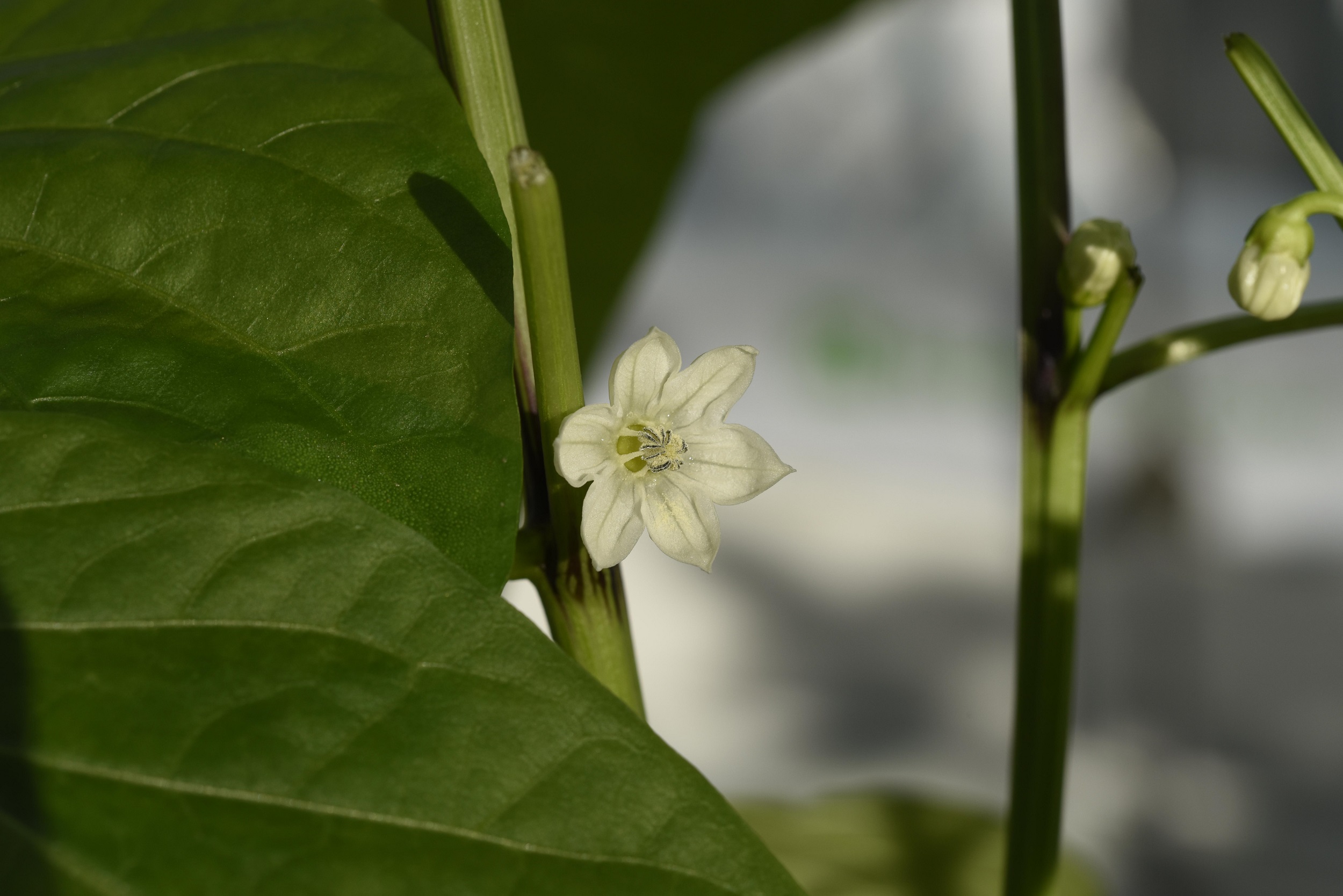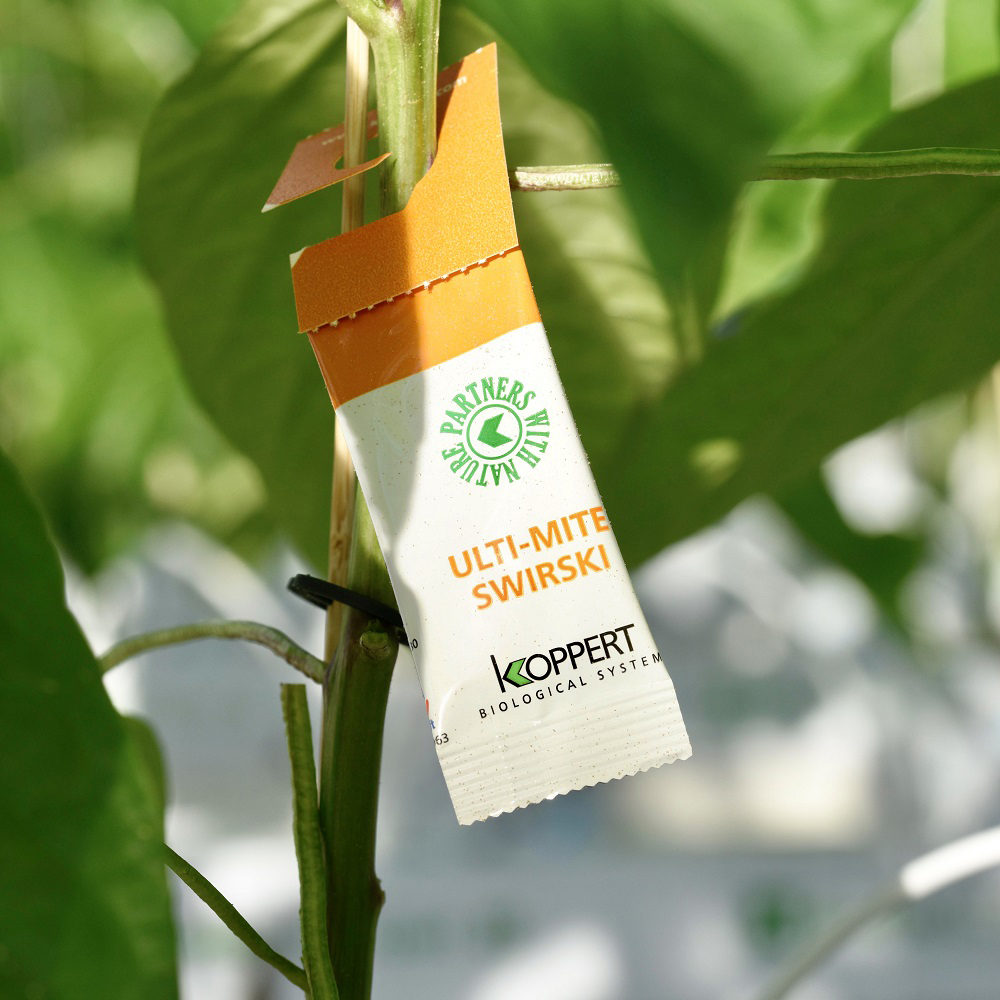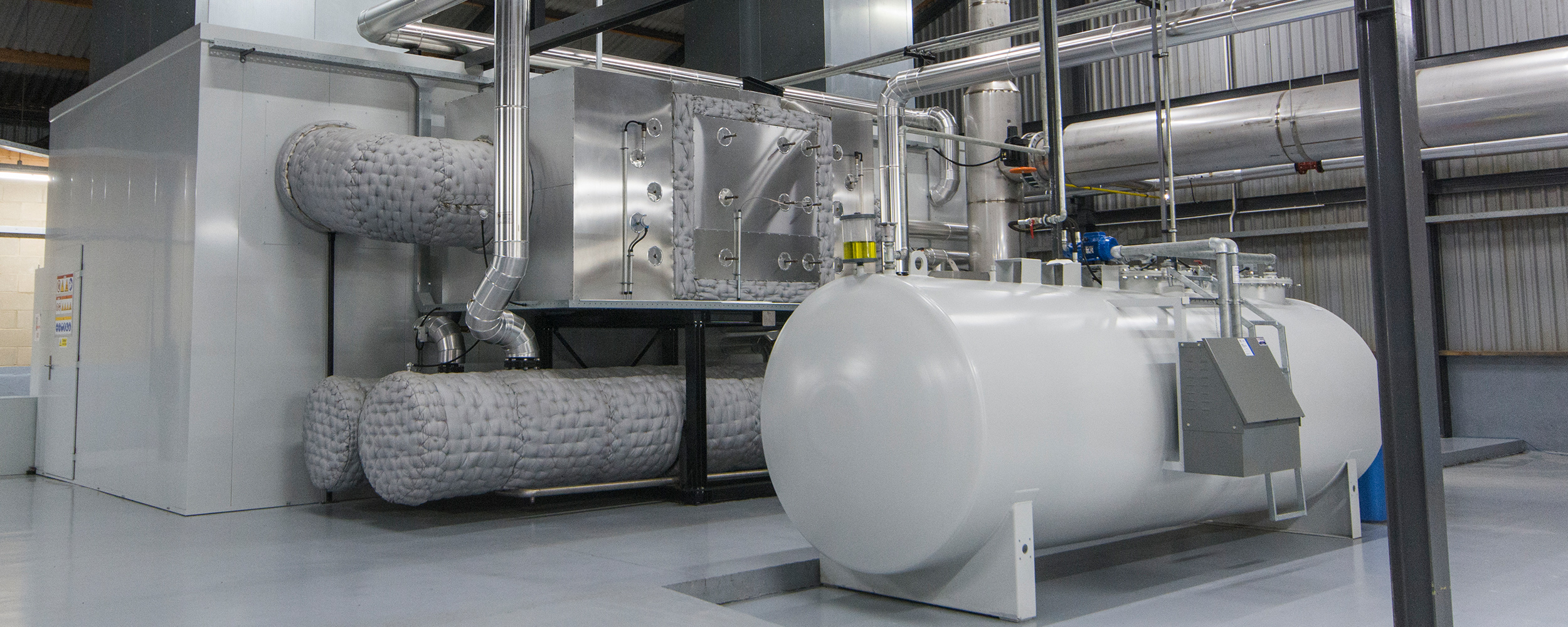Amblyseius swirskii mites will leave the compostable sachet in search of pests.
Biological control is an effective crop protection method that helps us to reduce the number of insect pests that eat or damage the pepper plants. It works by introducing beneficial ‘good’ bugs (the natural enemies of the pest) into the crop to suppress pest populations in an environmentally friendly way.
Guardians of the glasshouse
With thousands of plants to care for, Tangmere’s IPM system is a team effort that involves trained staff as well as the beneficial bugs to help prevent pests before they become a challenge. Staff are trained as ‘scouts’ able to identify pests, make introductions and continuously monitor the crop for potential threats.
Establishing our ecosystem
Currently we introduce at least eight different species of good bugs into our glasshouses to protect our crops and keep them healthy. Some of these predatory bugs are so tiny (just 0.5 – 5mm) they are barely detectable to the naked eye but are extremely important to enable us to grow the best sweet peppers.
At the beginning of the season, we introduce good bugs that can happily feed on the pollen of flowering plants before the pests arrive through the glasshouse vents. For example, in January, our first week of planting, teams will hang teabag size sachets to every fourth plant in a row, as a preventative treatment for Thrips and Whitefly.
Each sachet contains 250 Amblyseius swirskii mites that will leave the compostable sachet in search of new food sources. When the pests arrive, the swirskii mites will switch from feeding on the flower pollen to the higher protein pests.
Intentionally introducing the pest – the method to our madness
Twelve years ago, Tangmere decided to introduce the ‘pest in first’ process. Mark Knight our Technical Crops Manager pointed out that we had spent a decade trying to control the Red Spider and now we were introducing them. This sounds counter-intuitive but Phytoseiulus persimilis the natural predator of Red Spider is unable to live in the crop without the pest being present.
In February, when the days are shorter and cooler, we can introduce the Red Spider in a controlled way without them developing too quickly. After a couple of weeks, we can apply the beneficial mite Phytoseiulus preventatively and carefully monitor both the pest and predator populations until a natural balance is achieved that keeps the pests down to a manageable level. Later in the season, when the weather warms up and Red Spider enters through the glasshouse vents, our defence system is already established.
We first trialled this innovative technique on 7.5 hectares and the results were so successful, that the following year we applied it throughout the nursery. In the first year, the system reduced artificial pesticide use by 95% and has resulted in zero sprays for this pest even in challenging years like the hot summer of 2018.
Way forward
Developing our IPM system is key for us. As with all aspects of our production, we continue to support research and development, trialling new beneficial bugs and technologies in order to implement sustainable and resilient practices that work to protect our peppers against pests.


